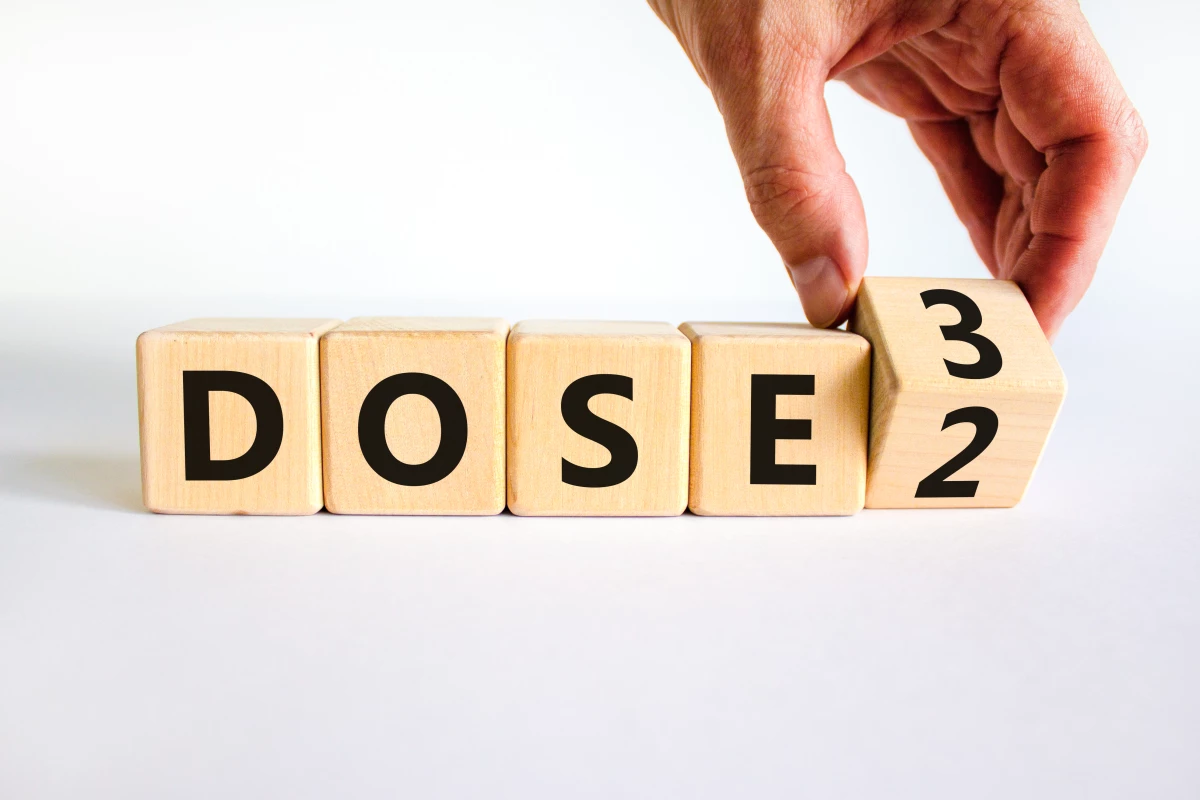US regulators have authorized a third COVID-19 vaccine booster dose for all adults over the age of 18. The new recommendations simplify the health advice and infectious disease expert Anthony Fauci urges boosters for all those who are six months beyond their second dose.
After a confusing few months of shifting recommendations the U.S. Food and Drug Administration (FDA) has amended its emergency use authorization to allow a third dose of either Pfizer or Moderna COVID-19 vaccine for all individuals over the age of 18. Previously the FDA only authorized a third COVID-19 vaccine dose in the elderly or certain high-risk groups.
“The FDA has determined that the currently available data support expanding the eligibility of a single booster dose of the Moderna and Pfizer-BioNTech COVID-19 vaccines to individuals 18 years of age and older,” explains Peter Marks, from the FDA’s Center for Biologics Evaluation and Research. “Streamlining the eligibility criteria and making booster doses available to all individuals 18 years of age and older will also help to eliminate confusion about who may receive a booster dose and ensure booster doses are available to all who may need one.”
Following the FDA’s authorization an independent advisory committee to the Centers for Disease Control and Prevention (CDC) unanimously issued its clinical recommendations for these boosters. The guidance now says all those over the age of 18 can receive a third dose no sooner than six months after the second dose.
The CDC recommendations note those over the age of 50 should get a third booster dose. While the advice for those aged between 18 and 49 is less urgent, suggesting they may get a third dose.
This advice is directed at those who initially received a two-dose protocol of either Pfizer or Moderna’s mRNA COVID-19 vaccine. All those over the age of 18 who received the single dose Johnson & Johnson vaccine should get a booster dose of a mRNA vaccine two months after their first dose.
“After critical scientific evaluation, today’s unanimous decision carefully considered the current state of the pandemic, the latest vaccine effectiveness data over time, and review of safety data from people who have already received a COVID-19 primary vaccine series and booster,” says CDC director Rochelle Walensky. “Booster shots have demonstrated the ability to safely increase people’s protection against infection and severe outcomes and are an important public health tool to strengthen our defenses against the virus as we enter the winter holidays.”
Anthony Fauci, director of the US National Institute of Allergy and Infectious Diseases, has previously said he believes a third COVID-19 vaccine dose should be considered an essential part of the primary vaccine protocol. Immune responses have been seen to wane around six months beyond a second COVID-19 vaccine dose, and a third dose significantly boosts antibody responses to high levels.
The big unknown at this stage is exactly how long this third dose protection will last. Fauci speculates the immune response from three doses should be more lasting than what has been seen after two doses, but he can’t say when another booster shot may be needed.
"We would hope -- and this is something that we're looking at very carefully -- that third shot with the mRNA not only boosts you way up but increases the durability so that you will not necessarily need it every six months or a year," Fauci said to ABC News. "If it doesn't, and the data show we do need it more often, then we'll do it, but you want to make sure you get the population optimally protected and you do whatever you need to do to make sure you do that."
There has been recent speculation the definition of “fully vaccinated” could be altered to cover three vaccine doses instead of two. State governors in New Mexico and Connecticut have alluded to this potential change, however, Fauci says the current US federal definition of fully vaccinated is still just two doses of a COVID-19 vaccine.
As a winter wave of infections spreads across Europe many countries are already grappling with new definitions of “fully vaccinated.” Austria’s full vaccination status, for example, expires nine months after a second dose, while Israel’s vaccination passes require a third dose six months following the second.




